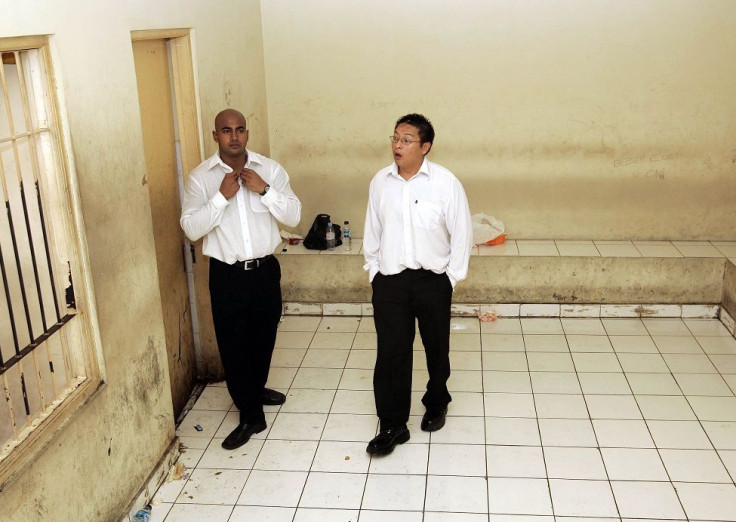Former Bali Nine Lawyer Claims Evidence That Could Save Andrew Chan, Myuran Sukumaran From Death Sentence

The former lawyer of Bali Nine death row inmates Andrew Chan and Myuran Sukumaran claims he has evidence that could form the basis of a new legal appeal and would hopefully save the duo from the firing squad. However, Mohamad Rifan acknowledged that by disclosing the “never revealed evidence,” he could be discredited.
Rifan was the legal counsel of the Australians in their 2006 trial. On Saturday, after visiting Chan, 31, and Sukumaran, 33, in Kerobokan prison, he revealed to reporters that evidence from the trial that could allow for a new legal appeal.
Apparently, there was “interference” in the case that got the pair death sentence instead of just life in jail. Rifan said he went over the case history with Sukumaran in prison to determine how he could work with their current lawyers on a last-minute legal strategy.
“At that time they were going to be sentenced to life, but there were factors which saw them sentenced to death,” he told reporters. “We saw intervention that time.”
He added that the judges who sentenced the duo to death told him that they didn’t want to give them capital punishment. “This highlights the problems that time, between the Indonesian government and the Australian government. I see at that time, the judges were not independent in sentencing the case.”
The new evidence, which the lawyer refused to divulge, may give hope to Chan and Sukumaran, but could cost Rifan his career. “It’s something that implicates us, it could discredit me. But for them I will take it.”
Rifan’s announcement came days after it was confirmed Chan and Sukumaran would be included in the next batch of inmates facing the firing squad. The Indonesian foreign ministry has announced that the Australian embassy in the country has been informed that the leaders of the media-dubbed Bali Nine will be executed before the end of the month.
Attorney General HM Prasetyo has yet to announce on a specific date and venue of the execution. He suggested he was holding off the details until another inmate, Nigerian prisoner Silverster Obiekwe, could be included in the next batch.
Indonesia to Execute Bali Nine Ringleaders Andrew Chan and Myuran Sukumaran Before End of February
Meanwhile, a lawyer and friend of the family of Bali Nine drug courier Scott Rush said the Australian Federal Police should take the blame for Chan and Sukumaran’s death sentence. Bob Myers tipped the AFP about the group’s attempt to smuggle heroin from Indonesia to Australia in 2005. The police assured him that they would approach Rush before he left the Asian country, but instead, they relayed the names, dates of birth and passport numbers of all the Bali Nine members to the Indonesian authorities. This had led to the arrest of the group.
Rush and the other members, Si Yi Chen, Michael Czugai, Renae Lawrence, Tan Duc Thanh Nguyen, Matthew Norman and Martin Stephens, were all sentenced to long prison terms. Chan and Sukumaran, however, were given death sentences after it was determined that they were the ringleaders
Myers said he now feels betrayed by the AFP, and that the police force should take the blame for Chan and Sukumaran’s death sentence. The AFP was allegedly aware of the drug conspiracy, and could have just arrested the nine Australians upon their return to the country. Myers also claimed that there was a guideline that stopped authorities from cooperating with requests from other countries in cases that could expose an Australian to the death penalty. Not only that there wasn’t cooperation at the request of the Indonesian authorities, the AFP voluntarily gave the information to Indonesia.
“They were both misleading and deceptive. They acted as though this was something Indonesia had done all on its own accord, they were terribly concerned about it and going to do everything they could to ensure none of the nine ever faced the death penalty,” he told the Sydney Morning Herald.
An AFP spokesman said they have changed its guidelines for dealing with such cases in 2009. The agency now considers relevant factors before sharing information that would likely lead to an Australian’s prosecution for death penalty.






